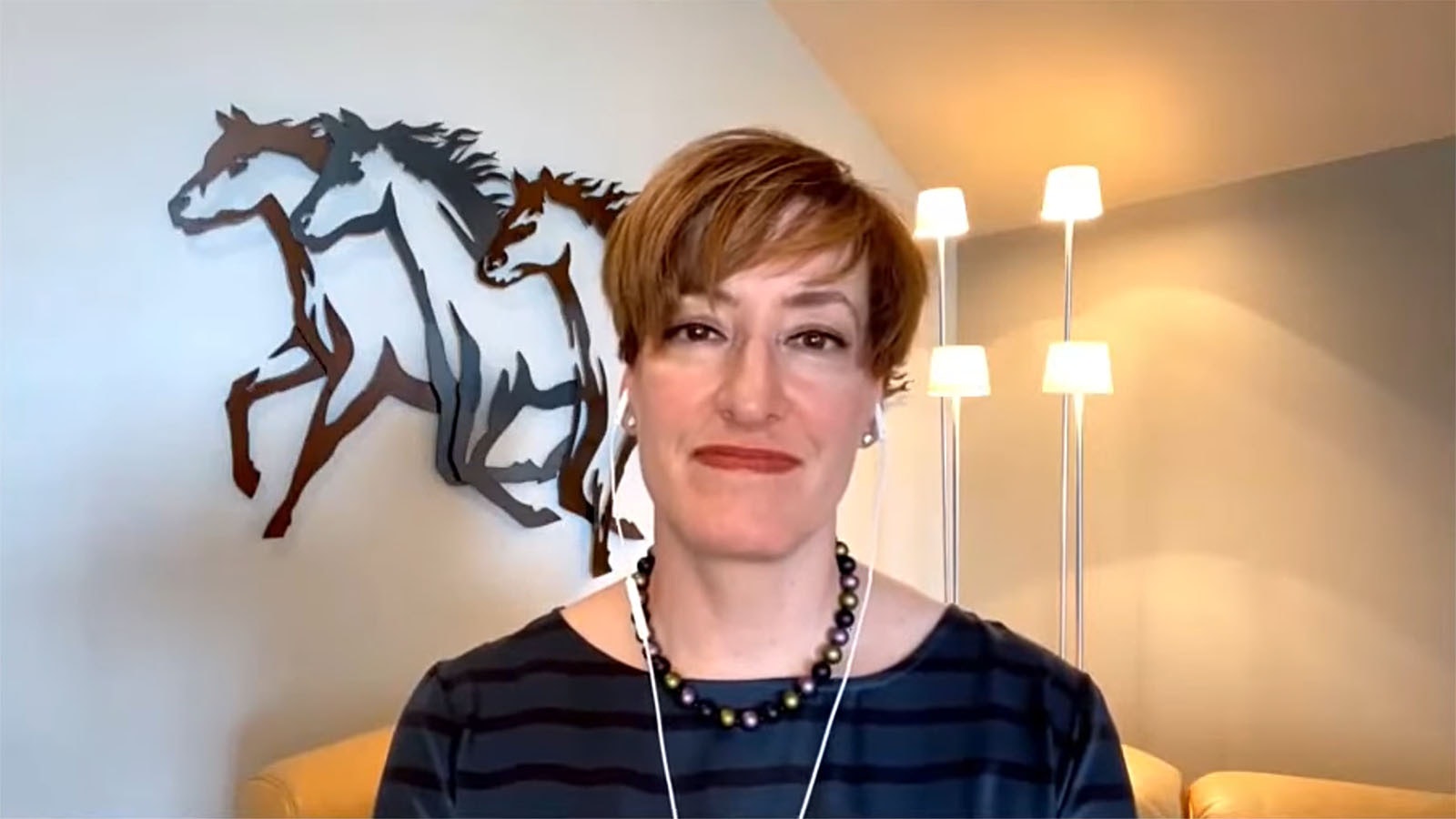By Renée Jean, Business and Tourism Reporter
Renee@CowboyStateDaily
Custodia Bank has filed an amended complaint in its lawsuit against the Kansas City Federal Reserve Bank, teeing up a David vs. Goliath fight between the small Wyoming financial institution and the federal agency that regulates the nation’s banks.
The action comes after the Federal Reserve shut the Special Purpose Depository Institution out of its system, denying the digital asset institution a master account. In making the decision, the agency said Custodia didn’t have enough safeguards in place against money-laundering or support of terrorism.
The Fed’s move would have negated Custodia Bank’s lawsuit against the agency, which sought to force it to act on the bank’s application for a master account.
Custodia had been waiting almost three years for any action on the application, even after being told that there were no “showstoppers” in there, according to the complaint.
The newly amended suit “zeroes in on the core legal issue,” Custodia Bank spokesman Nathan Miller said in an email to Cowboy State Daily.
That issue is whether Congress even granted the Federal Reserve Bank discretion to decide master accounts at all. The language related to that simply says that the Fed “shall” accept and grant a master account to any duly, state-chartered bank.
“It’s unfortunate that the Fed forced the hand of Custodia Bank, which tried every avenue to find a reasonable path forward,” Miller said.
FTX Crackdown
Since the implosion of the FTX cryptocurrency exchange, Wyoming’s aspirations in the digital asset realm have been getting caught up in a crypto crackdown by the Federal Reserve.
Not only was Custodia Bank’s application for a master account denied, but Kraken, another Wyoming SPDI, agreed to pay $30 million and halt its coin-staking program for American users as part of a settlement with the U.S. Securities and Exchange Commission.
The SEC said that Kraken’s coin-staking service amounted to selling an unregistered security.
Cowboy State Daily messages and an email to Kraken seeking comment have not been returned.
Wyoming’s first legal decentralized autonomous organization (DAO), meanwhile, is fighting with the SEC over whether its stable tokens are securities requiring registration.
A spokesman for the company told Cowboy State Daily that it’s made some headway in the case, with the judge indicating she at least understands where American CryptoFed DAO is coming from on the lack of clarity in SEC rules.
Many crypto analysts, meanwhile, are predicting that overreactions by federal agencies — instead of understandable and clear regulations — will prompt more lawsuits as companies seek clarity on what they may and may not do.
Shooting The Messenger
Custodia Bank founder Caitlin Long in a blog post accuses Washington, D.C., of playing shoot-the-messenger with her company.
Long has for some time been sounding warning bells over certain business practices and revealed that she had handed evidence over to law enforcement regarding “probable crimes committed by a big crypto fraud, starting months before that company imploded and stuck its millions of customers with losses.”
Long did not say which company she was referencing in the blog post, but has told Cowboy State Daily in the past she predicted the fall of FTX because it was not retaining 100% of its customer deposits and was using them for other, highly risky purposes.
She sparred with FTX founder Sam Bankman-Fried at a 2021 conference in Miami, in front of thousands of people, and continued talking to him after the panel, telling him point-blank that his company would fail.
She also says in her recent blog post that she warned bank regulators of increasing bank-run risk for several institutions that were already serving the crypto industry prior to those bank runs hitting. Many of those banks did not have to qualify for a master account for their crypto assets because they already had a master account.
Bankman-Fried, meanwhile, simply bought a majority stake in a bank that already had a master account, with no three-year wait required for him either.
Crypto Growing Pains
Long believes crypto has finally reached the same point in history as mutual funds once did.
“Before 1940, investing in mutual funds was like wading into a cesspool,” Long wrote. “The same is true of crypto today.”
But instead of a reactionary crackdown — as tempting as it was at the time — President Franklin D. Roosevelt recognized the then-new model’s potential for unlocking innovation.
So he worked with Paul Cabot, an investment management pioneer who had been regularly calling out the corruption he had seen from his industry peers.
Together they crafted the Investment Act of 1940, which is the foundation of modern financial regulation.
“History,” Long wrote, “is rhyming. Crypto is at a similar juncture.”
Like Cabot, Long said she has “been calling out the worst of crypto while trying to build a lawful, compliant alternative that relegates scams to the trash heap.
But while FDR invited Cabot to the Oval Office to work out how to fix the problem, most of today’s policymakers seem intent on killing the high-integrity innovators.”
New Complaint Questions Federal Authority
As a state-chartered bank, Custodia already has to follow all applicable banking laws, including know-your-customer rules aimed at preventing money laundering or support of terrorism.
Federal regulations, Long contends, don’t give the Federal Reserve any authority to reject a law-abiding, state-chartered bank from accessing the federal reserve system through a master account.
Long’s new complaint highlights that, but also raises the possibility that the Kansas City Fed did not act independently as it is supposed to do.
“Custodia was simultaneously attacked by the White House, the Federal Reserve Board of Governors, the Kansas City Fed and Sen. Dick Durbin, who conflated our non-leveraged, 100% liquid and solvent bank with FTX in a Senate floor speech,” Long said.
In the speech, Long said Durbin also attacked not just one, but two companies run by female CEOs and implied they could somehow be compared to a certain “29-year-old fraudster who is now wearing an ankle bracelet.”
That comparison, Long said, is completely unfair.
“Custodia tried to become federally regulated — the very result bipartisan policymakers claim to what,” she said. “Yet Custodia has been denied and now disparaged for daring to come through the front door.”
Will Wyoming Wade In?
Some in the Cowboy State, such as former lawmaker Tyler Lindholm, have already suggested Wyoming Attorney General Bridgett Hill should step into the lawsuit and add some heft to Custodia’s battle.
It’s not clear whether that has any legs.
Cowboy State Daily reached out to Gov. Mark Gordon, who used to serve on a board with the Kansas City Federal Reserve Bank, to talk about the future of Wyoming crypto, but the interview was declined, citing the ongoing litigation in Custodia’s case.
“While the governor is disappointed by the rejection of Custodia’s master account, he’s going to decline an interview on the future of crypto at this time,” spokesman Michael Pearlman told Cowboy State Daily in an email. “He does remain confident that the hard work the state has put in to build a digital assets framework will stand the test of times and he believes the Federal Reserve should not stand as an impediment to innovation.”





